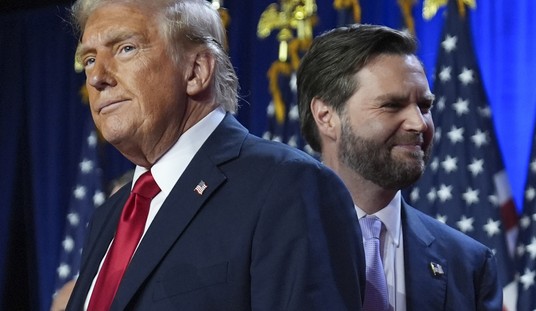When it comes to Israel, Democratic presidential hopeful Barack Obama has been letting his Jewish supporters and his staff do most of the talking for him.
But this week, all that changed.
Finally, the Illinois senator has stepped up to the front lines and started speaking for himself both in Tuesday night’s debate, speeches before Jewish audiences and interviews with Israeli publications.
Why now? Hillary Clinton a New York senator married to a former president who was a strong supporter of Israel, has been the undisguised favorite of the organized Jewish community with a strong commitment to Israel. At this stage in the campaign, in his final assault Obama is chipping away at Clinton’s core support — particularly in Ohio, where the Jewish vote is key.
And with his nomination beginning to appear a certainty, the Republicans are already starting to take aim at him in the foreign policy arena.
New third-party candidate Ralph Nader handed the GOP ammunition, stating on Meet the Press that Obama’s “better instincts and his knowledge have been censored by himself.” Nader claimed Sen. Obama was “pro-Palestinian when he was in Illinois before he ran for the state Senate” and “during the state Senate” – but had changed his tune once he set his sights on Washington – remarks that Republicans immediately seized on as revealing Obama’s true sentiments on Israel.
Moreover, Obama knew he needed to take a forceful stand to counteract the impact of the photograph of Obama in Muslim garb, and perhaps most troubling for his campaign, the unwelcome endorsement of National of Islam Leader Louis Farrakhan, a friend of the controversial pastor of Obama’s church, Rev. Jeremiah Wright.
The results of his decision to personally work to win over the Jewish community has thus far met with only mixed success. A closed-door meeting with 100 Jewish leaders in Cleveland, Ohio on Sunday to address some of the concerns of the Jewish community had been designed to reinforce his commitment to Israel.
Instead, some of his statements in the forum raised concerns, notably when he was quoted as saying
“I think there is a strain within the pro-Israel community that says unless you adopt an unwavering pro-Likud approach to Israel, then you’re anti-Israel, and that can’t be the measure of our friendship with Israel… If we cannot have an honest dialogue about how do we achieve these goals, then we’re not going to make progress.”
In a column responding to Obama’s comments, Philadelphia Jewish Exponent editor Jonathan Tobin succinctly summed up the problems that Israel and its supporters had with the remark. He said that they reflected the:
“old paradigm of American Jews being split along pro-Labor and pro-Likud lines in their affection for Israel. That may have once been true, but it’s an outdated way of looking at things. In the wake of the collapse of the Oslo process, most Israelis and American Jews realize that such a division is meaningless. Both the left and the right in Israel have failed – and almost everyone knows it. Israelis want peace and are willing to make sacrifices for it, yet they no longer blindly trust in the peaceful intentions of their antagonists. Obama needs to drop this line, especially since, if he’s elected president, the odds are that he may have to work with a Likud prime minister of Israel named Benjamin Netanyahu some time during his term of office.”
Now, in his latest attempt to woo the Jews, Obama offered the highly influential daily Yediot Aharonot his most forthright public remarks thus far.
Three responses to questions appeared today as teaser for a promised full-length interview to be published on Friday.*
Senator Obama, the Jewish community and Israel fears that because of your Muslim background you will favor the Arab side in the Middle East conflict. How do you respond?
“First of all, it is important to state the facts: I am not a Muslim and I never have been. I never studied at a Madrassa and I have never sworn on the Koran. I am committed to Christianity. For four years I lived in Indonesia as a child and I studied at a secular school. When I am sworn in, I do it on a Bible that belongs to my family. Those who know the facts do not doubt my commitment to Israel’s security and my commitment to the U.S. relationship with Israel. It is possible that my level of understanding will allow me to conduct better diplomacy in the Arab world. That is definitely an advantage for me.”
For many years Israel has viewed the president of the United States as a friend. Will that friendship continue if you are elected president?
“The definite absolute answer to that question is yes. I will bring to the White House an unshakeable commitment to the state of Israel and to the friendship between the U.S. and Israel. The relationship between the U.S. and Israel is grounded in shared interests, shared values, and shared history and a deep friendship between the two people. This situation is supported by a bi-partisan consensus in the United States that I am proud to be a part of. When I am president, I will work tirelessly to solidify and deepen the friendship between the US and Israel.”
You said you are willing to “talk to all enemies, including Iran.” Will dialogue with Iran prevent its acquisition of nuclear weapons? If diplomacy fails, would you support military action against Iran?
“I don’t believe that diplomacy alone will stop Iran from acquiring nuclear weapons. I believe that we will require our national strength in order to achieve this important goal. The biggest threat to Israel today comes from Iran, where there is a radical government that is continuing its efforts to develop nuclear weapons and continues to support terror across the region. President Ahmedinejad continues to deny the Holocaust and call for Israel’s destruction, and it is impossible to relate to his threats to destroy Israel as mere rhetoric. My mission when I am president will be to eliminate that threat. The time has come to talk directly to the Iranians in order to arrive at an end to their support for terror and an end to the creation of nuclear weapons. I believe that we need to offer Iran improved relations with the international community. If they do not respond to that, we must continue to intensify the sanctions.”
(*these quotes appeared in Hebrew and have been translated as accurately as possible — AKS)
Allison Kaplan Sommer is PJM’s Tel Aviv editor.









Join the conversation as a VIP Member